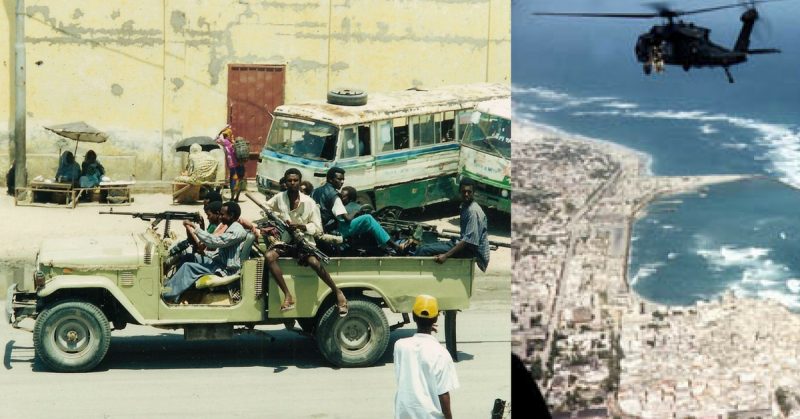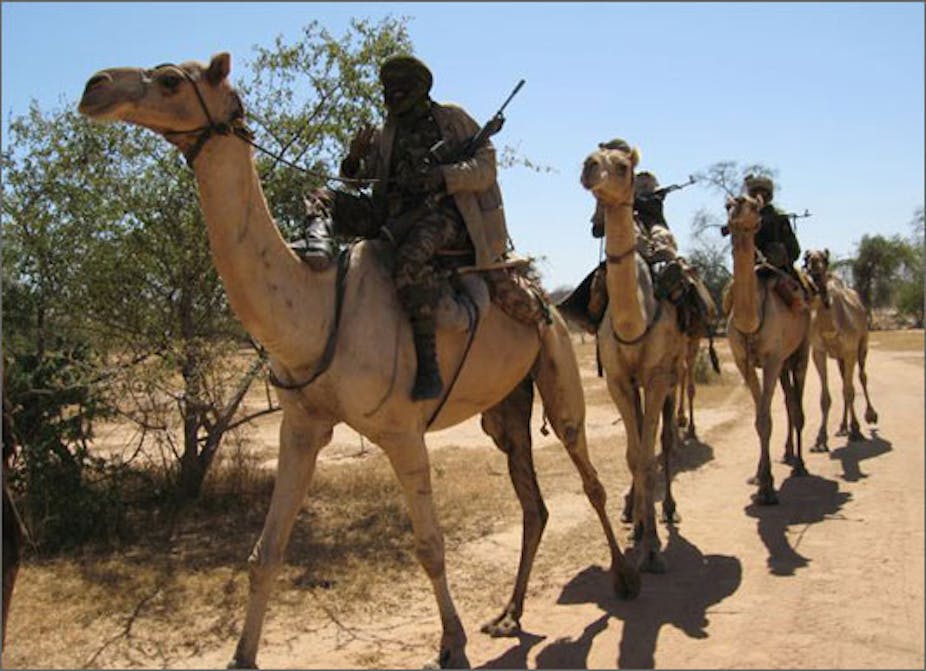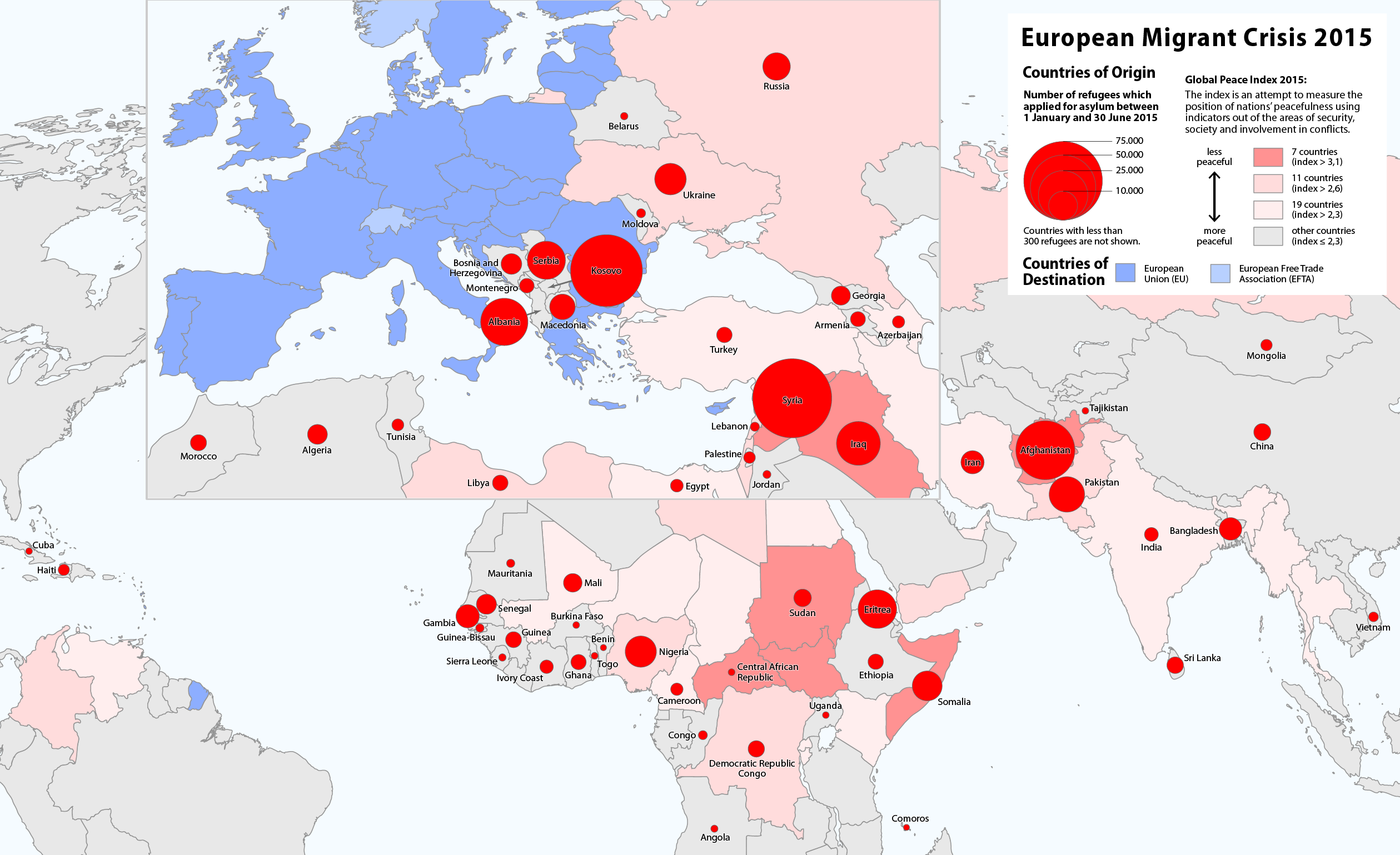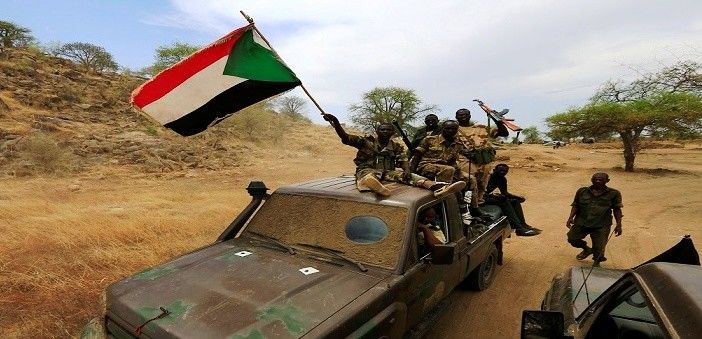Developed nations, unable to stem the flow of migration directly into their borders, have increasingly ‘outsourced’ enforcement to authoritarian and violent militias in the source countries that people are fleeing from. Through partnerships with repressive governments and tying aid to migration enforcements, wealthy nations indirectly employ paramilitary groups to take action for them. The paramilitary proxies then commit acts of violence and violate international norms, without the developed nations having to take direct responsibility. One of these groups is known as the Janjaweed.
History of the Janjaweed
The 1980s saw a major civil war in the country of Chad against the Libyan forces trying to assert control over the region and on their affairs. The campaign was spearheaded by Muammar al-Gaddafi, who ruled Libya, in order to spread Arabic influence over the Northern portion of Africa, neighboring many Middle Eastern nations in the process of this cultural cross fire. Their neighbor, Sudan, was in the midst of the conflict and began seeing much of Gaddafi’s army (mainly the people of Chad who joined his campaign) and influence spread over the region, so they decided to arm the tribe Abbala to repel these insurgents.

However, the government of Chad was also able to fight back (thanks to the US and France) and a peace agreement was signed in 1987. After the incident, there was much fighting between the North and Southern region of Sudan as the 2 armed groups began to form a sort of alliance over land and water rights, against the local farmers. The conflict got worse at the turn of the century in Darfur, a region in Western Sudan, as those that were either farmers or supported them were saying that the Arab-dominated government was unfair to them in their rights where many felt discriminated against, physically assaulted, and even lives getting taken and conditions of living in a draconian government are sentiments that are unfortunately not uncommon (many farmers were African so many speculate the reasoning was more cultural); many staged strikes and raids against the government, while many also formed into armed groups known as the Sudanese Liberation Army/Movement and the Justice and Equality Movement. As a result, the Arab militia force united and became known as the Janjaweed.

The Janjaweed in cooperation with the Sudanese government targeted the civilian population and engaged in joint attacks on civilians. In 2004, Human Rights Watch described the situation as follows: “The government and its Janjaweed allies have killed thousands of Fur, Masalit, and Zaghawa– often in cold blood, raped women, and destroyed villages, food stocks and other supplies essential to the civilian population.They have driven more than one million civilians, mostly farmers, into camps and settlements in Darfur where they live on the very edge of survival, hostage to Janjaweed abuses.”
By 2006, members of the Janjaweed joined the Sudanese army and continued expanding by including members that were not part of the traditional tribal group. In 2007, the US considered the Janjaweed to be a threat for their acts of genocide in the region and neighboring regions, their actions climbed to victims in the hundreds of thousands. In 2008, an International court filed a charge against the President of Sudan, Omar al-Bashir, for being the mastermind in the actions of the Janjaweed to the African population in Darfur, through horrible acts of Rape, Murder, etc. In 2013, the Janjaweed changed their name to the Rapid Support Forces (RSF).
European Migration Crisis

From 2015 onwards, migrants from the Middle East and Africa poured into Europe. At first, European leaders accepted the flow of migrants, but backlash against the migrants led to increased efforts to prevent their arrival. European leaders may have used financial resources from their own treasury to essentially pay paramilitary groups in the countries and regions in which these migrations are most apparent, in order to stifle the flow of emigration.

Critics reason that it is due to the sudden significant drop in the amount of migrants since 2016. Supposedly, these countries would pay off groups such as the RSF in order to maintain border security in these regions by having a sort of crackdown on the migrants attempting to flee. Many of times it would involve murder, injury, or even cases of rape to the party that wishes to escape.
The RSF has for years essentially run Sudan; massive protests against RSF control have resulted in a transition period, but the RSF still has deep influence. Khartoum, the capital of Sudan is headquarters of the Khartoum Process – originally supposed to be an initiative to combat human trafficking, but according to the MENA Solidarity Network, has since shifted “from helping the vulnerable and weak, to ensuring they can only leave their countries through routes approved by the same oppressive regimes they were trying to flee.”
“Even funding for projects aimed at tackling hunger and disease were brought under the umbrella of the Khartoum Process, in effect making humanitarian aid conditional on “improved” border control. Through the EU Trust Fund for Africa, 217 million euros have been allocated to projects in Sudan since 2015.
Although this was the same regime which had instigated a genocide in Darfur, a civil war that contributed to the separation of South Sudan and got Sudan listed as a state sponsor of terrorism, the EU governments continued to work with El Bashir’s security apparatus on “migration management.”
This involved direct support to the Sudanese police, which is notorious for brutal treatment of refugees, and collusion in the rise of the Rapid Support Forces militia.”
The Process is said to have caused migration to severely tighten through the governmental manner so this caused smuggling by unknown actors to rise. Many see the shadier side of these meetings due to the European countries making deals with the leaders of those from the Middle East and Africa who are or are associated with those who commit heinous acts towards their citizens or have been accused of violating human rights. The way in which the money is distributed to these governments in the Middle East and Africa is through a convoluted means of granting money to various charities and aid agencies, which many speculate is diluted to the respective government instead.
Many state that by doing this, Europe is being complicit to these regional leaders and were even called out by the Sudanese and Eritrean rights group. Even nations in Europe such as France, Belgium, and Italy have allowed members of the Sudanese military into their countries to handle the deportation cases that were pending for some asylum seekers, many said they were tortured on their way back, but it is something their government has denied.
It has also been surmised (from another source) that many captured by the RCF either had to pay a bribe to ensure safety or were themselves smuggled into these European countries as a sort of convoluted scheme in paying off the RSF to be returned to their countries without harm.
Human Rights advocates have accused the Sudanese government of allowing forms of human trafficking to occur, as many have looked at data in Sudan and Libya, and have disregarded their own legislation, but with the help of Europe, such actions have kind of ceased. Sudan and Libya are prominent as they are an important route to Europe, or, in particular Libya, is seen as a secondary area of asylum. Europe appears to be in talks of imposing some sort of restriction on Sudan and Libya for their treatment to migrants in their detention centers, which many criticize for being abysmal, and their means to obtain undocumented migrants by land and sea.

US dealings on the immigration crisis
In the United States, the Trump administration, in their progress to secure the US-Mexico border, has taken much action to the governments in Central and South America to stifle the flow of undocumented migrants arriving on foot or via caravan. In recent years, the amount of migrants that have arrived has soared for many reasons, including government and police corruption. As a result, in places such as Honduras, Guatemala, and Mexico, migrants arrive and go in massive droves to the United States. Many migrants go through these various countries as a sort of route to head to the US. The Trump administration has pressured the Honduran, Guatemalan and Mexican governments to stop migrants from leaving. Such as when the President imposed economic sanctions to Mexico in order to apply pressure towards the south. The President of Mexico, Andres Manuel Lopez Obrador, has responded to the actions by ramping up security along the borders to stifle migration, and even got the national guard involved.

Those that came to Mexico from their travels, will be sent to an immigration station and unless their legal status cannot be resolved, they will be deported. In order to help the migrants, the Mexican government has offered them to stay and work in Mexico and to apply for asylum, but cannot travel further to the US. President Obrador has also made it so migrants that are traveling through Mexico can apply to reside in Mexico legally in specific regions, however, many that did do so say that even with this, the government can still deport people, further supported by the ordinance that states that the government can do this if the situation calls for it. In places such as Honduras, the US has announced a restriction on the amount of aid given to them in order to resolve the problem of the mass flow of migrants. As a further result, the government is doing what they can to stifle the amount of crossing along the route to their neighbor, Guatemala.




Be First to Comment